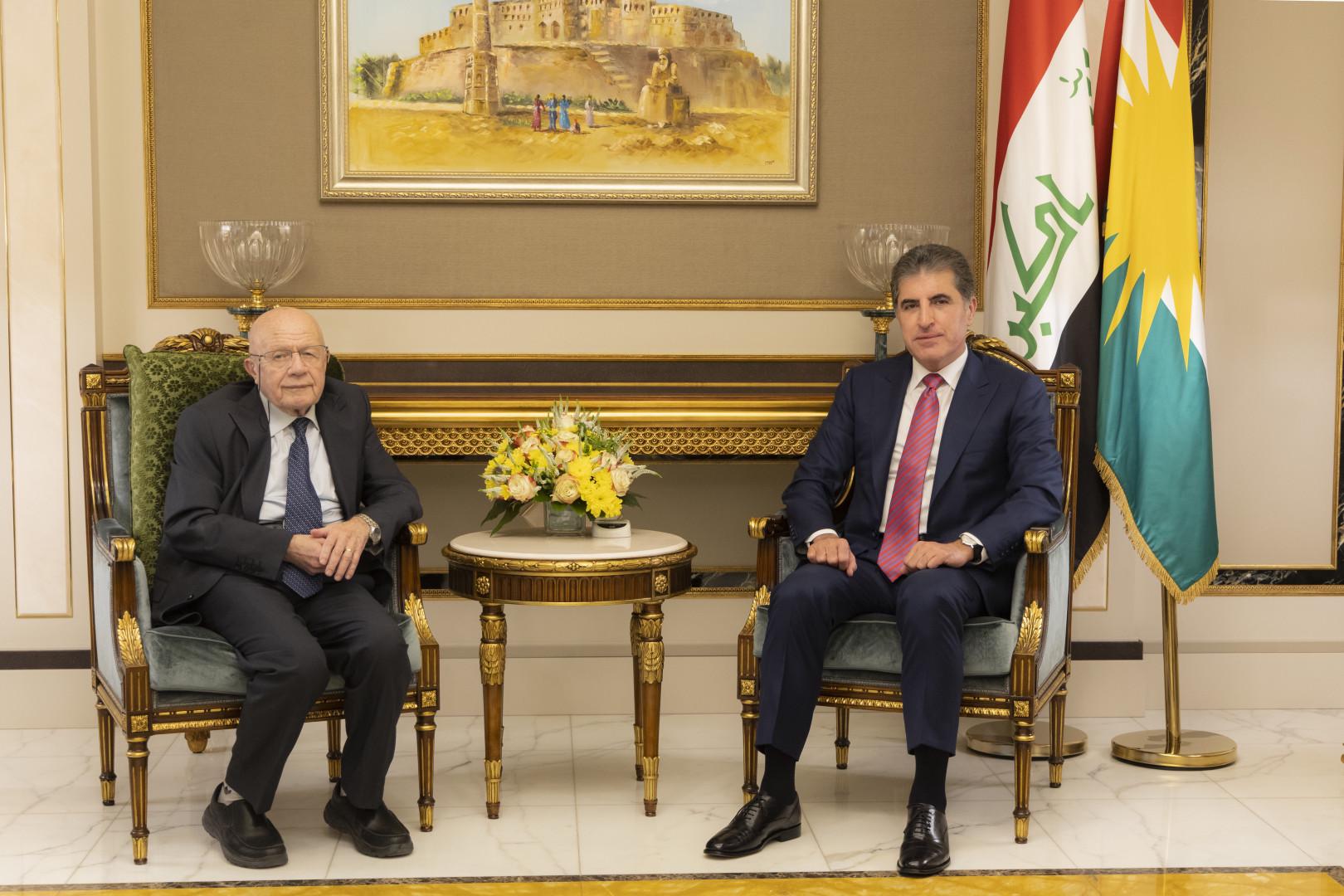Parliament Speaker Al-Mashhadani's key test: One month to settle Iraq's controversial laws

Shafaq News/Iraq’s parliament is set to address a series of divisive laws, each backed bydifferent sectarian interests, as lawmakers extend the legislative session tofinalize key votes.
The proposedlaws face heated debate. However, newly-elected Parliament Speaker MahmoudAl-Mashhadani has prioritized breaking through longstanding political deadlockto pass these laws, viewed as essential yet controversial steps toward nationalreconciliation.
ControversialLaws in Iraq
GeneralAmnesty Law: Sunni Demand
The GeneralAmnesty Law, first enacted in 2008, has become a focal point of Sunni politicaldemands for national reconciliation. The 2016 revision aimed to increase Sunniinclusion in Iraq’s political framework but faced resistance from Shia factions,concerned it could enable the release of convicted terrorists.
Proposedamendments now exclude individuals convicted of terrorism and serious crimes,seeking compromise. However, the law remains divisive, as Shia leadersprioritize national security, while Sunni representatives view it as criticalfor peace and political balance.
PersonalStatus and PMF Pension Laws: Shia Demands
The PersonalStatus Law originally passed in 1959, is a legal flashpoint as proposedamendments allow Iraqis to choose religious laws for personal status matters.Critics argue this shift risks eroding progress on women's rights, potentiallyallowing child marriages and weakening custody laws. While Shia supportersclaim it’s constitutional, civil activists warn it could hinder genderequality.
Separately,the PMF Pension Law seeks to formalize benefits for fighters in thepredominantly Shia Popular Mobilization Forces (PMF), granting pensions andmedical care. Although this law acknowledges the PMF’s role in Iraq’s defense, concernsarise over sectarian favoritism and budget strain, with critics arguing itcould deepen sectarian rifts.
PropertyRestitution Law: Kurdish Demand
The PropertyRestitution Law, championed by Kurdish factions, seeks to restore lands seizedfrom Kurds and Turkmen during the Baathist era, aiming to to address historicalinjustices in areas like Kirkuk. While the law has garnered some support,ethnic tensions persist, as Arabs, Kurds, and Turkmen view land redistributionthrough competing group interests. Resolving these disputes could promotejustice, but factional divides have prolonged delays, reflecting Iraq's broaderstruggle with ethnic and sectarian balance.
Politicalanalyst Jassim Al-Ghurabi noted that "these laws often reflect sectarian interests,with each group seeking to secure their political and cultural preferencesthrough legislation—Kurds with the Property Restitution Law, Sunnis with theGeneral Amnesty Law, and Shia with the Personal Status Law."
A PriorityFor Mahmoud Al-Mashhadani
According toIraqi MP and Secretary-General of Al-Bawasil National Party, Mohammad QutaibaAl-Bayati, Speaker Al-Mashhadani has prioritized breaking through prolongeddisputes and aims to push through these stalled laws.
Al-Bayatitold Shafaq News Agency, "One of the Speaker’s top priorities isaddressing the controversial laws that were left unresolved during the speakervacancy," adding that Al-Mashhadani decided to extend the legislativesession by an additional month to allow for final votes on criticallegislation.
"Parliamentaryleadership and the majority of MPs are committed to passing these laws withinthis extension period."
EchoingAl-Bayati’s sentiment, Mohammad Hassan Radhi, an MP from the State of LawCoalition, noted that extending the legislative term was essential foradvancing previously stalled laws. "The primary objective behind extendingthe legislative term is to resume progress on these essential laws, which hadstagnated," Radhi said.
ConstitutionalGrounds for Extension
FollowingThursday’s announcement that the parliamentary term would be extended for 30days starting November 9, legal expert Ali Al-Tamimi explained that theparliamentary extension is "grounded in Article 58/2 of the IraqiConstitution. This allows for an extension upon request by the President, PrimeMinister, Speaker, or 50 MPs, provided it receives majority approval."
Al-Tamimifurther explained that several laws, including the aforementioned four laws,have undergone their first and second readings and are now ready for finalvotes. "The parliamentary extension was requested by the Speaker andapproved by the MPs to complete these pending legislative tasks," headded.




